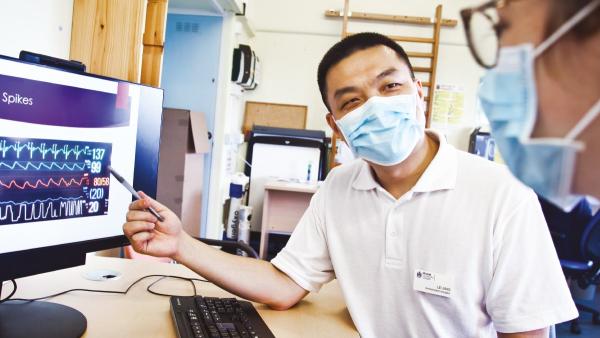Find out about the support available to you, as well as what your employer should do to induct and supervise you, and how you can best demonstrate continuing professional development (CPD)

Coming to work in a completely new health system and with knowledge and skills that may vary from that of UK-trained graduates, can be challenging.
Not only must you learn to adapt and integrate into a new culture you must also learn how we practice in the UK and of the guidelines and evidence base we adhere to.
You will be expected to read around and learn some of this independently. If you know what types of patients you will be treating in your new job it would be a good idea to read up on national guidelines for that area, such as NICE or SIGN. The service in which you will work will also help guide you.
There is a lot of terminology used when describing available support which can be a bit confusing. This section aims to help explain what processes and policies should be in place to help.
It is a good idea to ask at the interview what support will be offered.
Local induction
Your new employer should set up a clear and comprehensive induction programme which is specific to your needs. This should introduce you to the service and wider organisation to which you are joining and to the wider area.
It should offer pastoral support, such as helping you set up a bank account or mobile phone provider, familiarise you with public transport and introduce you to work in the UK. This will enable you to settle in and be introduced to colleagues and local policies and procedures.
Preceptorship
Many AHP services are introducing preceptorship programmes. This is a period of structured support and development that aims to help newly employed physiotherapists grow in confidence as autonomous and accountable practitioners.
Clinical supervision
All practising clinical physiotherapists should be taking part in regular clinical supervision. This is a formal process between you and another skilled, experienced practitioner, peer or senior, which supports, assures and develops your knowledge skills and values.
This ensures that your practice is monitored and, through talking with your supervisor, you are supported to learn and develop your practice.
Some internationally trained physiotherapists now working in the UK have told us they initially felt they were being judged or tested before they realised that all staff should be taking part in supervision and that it was there for their benefit.
Mentoring
A mentor is someone with valuable experience and knowledge who can offer guidance and support. You may reach out to someone you know who has been through the process before or seek a mentor via the CSP mentoring platform.
You may also wish to reach out to one of our professional networks or diversity networks to find support from those who have successfully integrated into the UK workforce, or who work in the specialist area you are interested in.
CPD and self-development
HCPC registration is a legal requirement for physiotherapists working in the UK. All registered physiotherapists must renew their registration every two years and as part of this renewal process, 2.5% of physiotherapy registrants are randomly selected to participate in the HCPC’s continuing professional development (CPD) audit.
You must be able to demonstrate how you have kept up to date with and developed your practice and kept a record of this. This could be by reflecting on patient assessments and treatments, peer review, attending courses, taking part in clinical supervision, reading research papers and so on.
CSP members can access our e-portfolio which is an easy-to-use online portfolio where you can record, organise and share all your CPD. The e-portfolio provides templates for different types of reflections which is a useful guide if have not previously developed a habit of reflection writing.
Our members can also access our learning hub for interactive courses and videos to help your learning and development on topics.